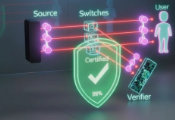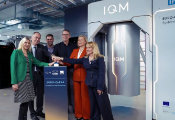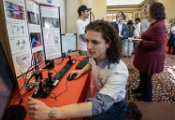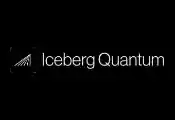Volkswagen and IQM Quantum Computers Release Study on Battery Simulation
Munich, Germany, November 15, 2024 -- Researchers at German carmaker Volkswagen Group and IQM Quantum Computers (IQM), say a hybrid approach of quantum and classical computing for battery simulation could help boost electric car batteries.
Using Auxiliary-field Quantum Monte Carlo (AFQMC), the researchers reduce the required quantum resources by decomposing the trial wave-function into classical and quantum parts, respectively treated by classical and quantum devices, within the contextual subspace projection formalism, in a latest study published in arXiv and whitepaper.
In addition, the study shows that the quantum algorithm is compatible with the recently developed matchgate shadow protocol for efficient overlap calculation in Quantum Computing-AFQMC.
The researchers investigated the nitrogen dimer and the reductive decomposition of ethylene carbonate in lithium-based batteries, finding that their method surpassed several established algorithms for ground state energy computations. Remarkably, it achieved chemical accuracy using less than half the original number of qubits.
“Our approach goes beyond current capabilities by accurately simulating a chemical reaction involving ethylene carbonate molecules and lithium ions using just 13-qubits in a contextual subspace, from a 32-qubit active space,” said Fedor Šimkovic, Team Lead for Simulation at IQM Quantum Computers.
He added: “It outperforms both classical and quantum methods, including the gold-standard CCSD(T), and demonstrates the potential of our technique in hybrid quantum-classical as well as quantum-inspired settings, suggesting it may be able to handle much larger systems than existing methods.”
Volkswagen’s Matthew Kiser explains that “Investigating the nitrogen dimer and the reductive decomposition of ethylene carbonate in lithium-based batteries, we observe that our method outperforms a number of established algorithms for ground state energy computations, while reaching chemical accuracy with less than half of the original number of qubits.”
According to the researchers, the findings show progress in using AFQMC with quantum computers to study such problems, and the collaboration between Volkswagen and IQM could represent a significant step forward in the quest for better electric car batteries.




































